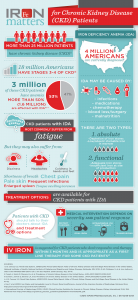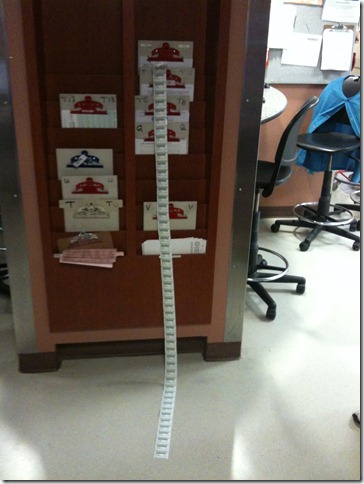March 22nd, 2013 by Dr. Val Jones in Health Tips
No Comments »
 Finding Nemo is one of my favorite Disney-Pixar cartoons. Not only does it have a cute story line, but it’s full of medical themes – consider the movie’s namesake with a congenitally deformed fin (Nemo), the shark with addiction problems (Bruce), and the blue tang fish with memory impairment (Dory). Even Nemo’s captor turns out to be a dentist! But when I think about the scene where the fish attempt escape from the dentist’s tank by plugging up the filter system to get him to remove them for cleaning, I always think about kidneys. Yep, you heard me right. Kidneys.
Finding Nemo is one of my favorite Disney-Pixar cartoons. Not only does it have a cute story line, but it’s full of medical themes – consider the movie’s namesake with a congenitally deformed fin (Nemo), the shark with addiction problems (Bruce), and the blue tang fish with memory impairment (Dory). Even Nemo’s captor turns out to be a dentist! But when I think about the scene where the fish attempt escape from the dentist’s tank by plugging up the filter system to get him to remove them for cleaning, I always think about kidneys. Yep, you heard me right. Kidneys.
Kidneys are fairly under appreciated organs. They filter waste out of 200 liters of blood each day, much the way a fish tank’s filter system purifies its water. Most of us probably don’t even notice a fish tank filter when we gaze at the plastic plants, pebbles, and colorful animals inside the tank – just as we don’t give our kidneys a second thought until they cause us problems.
But the reality is that an astonishing number of people will develop chronic kidney disease (CKD) in their lifetime, largely due to complications from diabetes. An estimated 26 million Americans have CKD, and the majority don’t even know it. Our fish tank filters are failing slowly – and the build up of “algae and grime” just doesn’t cause symptoms until very late in the failure process.
Since March is Kidney Awareness Month, I thought it would be a good time to reflect upon the hard work that our little guys are doing each day. Beyond filtering drugs and chemicals from the blood, kidneys balance body fluids and electrolytes, create Vitamin D, regulate our blood pressure, and produce hormones that stimulate our bodies to produce red blood cells. In fact, anemia can be one of the first signs of kidney failure, and may be experienced as generalized fatigue. People with CKD often suffer from anemia, which can be treated with dietary changes, oral iron, IV iron, or blood transfusions depending on disease severity.
So whether or not you’ve been feeling fatigued, why not ask your primary care physician to check your kidneys next time you’re there for a check up? A simple blood test can identify many kidney diseases early on – so that you can take steps to keep your filter system healthy for life. Just ask Nemo – being in a dirty fish tank is no way to live.
For more information about CKD and anemia, please check out this infographic:

January 19th, 2011 by Elaine Schattner, M.D. in Better Health Network, Research
No Comments »

There’s hematology news, times two (at least):
1. Progress in developing synthetic red blood cells
A University of North Carolina-Chapel Hill research group has created hydrogel particles that mimic the size, shape and flexibility of red blood cells (RBCs). The researchers used PRINT® (Particle Replication in Non-wetting Templates) technology to generate the fake RBCs, which are said to have a relatively long half-life. The findings were reported on-line yesterday in the Proceedings of the National Academy of Sciences (PNAS) (abstract available, subscription required for full text). According to a PR-ish but interesting post on Futurity, a website put forth by a consortium of major research universities, tests of the particles’ ability to perform functions such as transporting oxygen or carrying therapeutic drugs have not yet been conducted.
Developing competent, artificial RBCs is a hematologist’s holy grail of sorts, because with that you might alleviate anemia without the risks of transfusion.
2. Progress in using human stem cells to generate lots of platelets
In an exciting paper published today in Cell Research, investigators stimulated human embryonic stem cells to become platelet-producing cells, called megakaryocytes. According to the article (open-text at Nature PG), the platelets were produced in abundance, appeared typical and clotted appropriately in response to stimuli in vitro. The researchers injected them into mice, used high-speed video microscopy for imaging, and demonstrated that the stem cell-derived human platelets contributed to clot formation in mice, in vivo (i.e., they seem to work). Read more »
*This blog post was originally published at Medical Lessons*
December 30th, 2010 by admin in Better Health Network, News, Research, True Stories
No Comments »


Gene Goldwasser died last week. He was 88, and he was my friend.
I wrote previously about a series of conversations I conducted with Gene and Rabbi A.J. Wolf a few years ago. I met Gene one spring day after calling to invite him to sit in on a class I was teaching to a small group of medical students about social issues in healthcare.
I’d read about him in a book called “The $800 Million Pill,” by Merrill Goozner. In the book, Goozner writes the story of Gene’s two-decade hunt to isolate the hormone erythropoietin (EPO).
Part of the story relates how Gene tried to interest traditional big pharma companies in his discovery, only to be brushed aside. Instead, Gene wound up sharing his discovery with what became Amgen. The company went on to make a windfall from recombinant production of the hormone and licensing it as a drug for patients with anemia and kidney failure. Read more »
*This blog post was originally published at ACP Internist*
January 3rd, 2010 by GruntDoc in Better Health Network, True Stories
No Comments »


It’s going to take a while to draw all those labs. And the patient will probably need a transfusion at the end of it.
(Reportedly the printer engaged itself in a loop and printed out blood culture label sets 25 times, so don’t panic).
*This blog post was originally published at GruntDoc*
 Finding Nemo is one of my favorite Disney-Pixar cartoons. Not only does it have a cute story line, but it’s full of medical themes – consider the movie’s namesake with a congenitally deformed fin (Nemo), the shark with addiction problems (Bruce), and the blue tang fish with memory impairment (Dory). Even Nemo’s captor turns out to be a dentist! But when I think about the scene where the fish attempt escape from the dentist’s tank by plugging up the filter system to get him to remove them for cleaning, I always think about kidneys. Yep, you heard me right. Kidneys.
Finding Nemo is one of my favorite Disney-Pixar cartoons. Not only does it have a cute story line, but it’s full of medical themes – consider the movie’s namesake with a congenitally deformed fin (Nemo), the shark with addiction problems (Bruce), and the blue tang fish with memory impairment (Dory). Even Nemo’s captor turns out to be a dentist! But when I think about the scene where the fish attempt escape from the dentist’s tank by plugging up the filter system to get him to remove them for cleaning, I always think about kidneys. Yep, you heard me right. Kidneys.
















